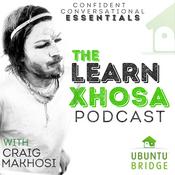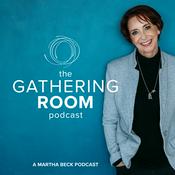Where Parents Talk: Evidence-based Expert Advice on Raising Kids Today

250 episodes

Preventing and Managing Food Allergies with Confidence
2026/1/10 | 36 mins.
Food allergies affect 1 in 13 children—and for many parents, the fear and uncertainty can feel overwhelming.In this episode of Where Parents Talk, host Lianne Castelino speaks with Malina Malkani, pediatric registered dietitian, bestselling author, and mom of three, to break down the latest science-backed guidance on food allergy prevention.Learn why early introduction of allergenic foods like peanut and egg during infancy can significantly reduce the risk of food allergies, what the research really says about safety, and how parents can confidently introduce allergens in simple, baby-safe ways. Malkani explains the critical window for prevention, common misconceptions, and what to do if you’ve missed it.Takeaways:Understanding the importance of early allergen introduction can significantly reduce food allergy risks in infants.When it comes to feeding babies, simplicity and variety are key to fostering healthy eating habits.Parents should prioritize establishing open communication about food allergies to empower their children in social settings.The role of a caregiver is pivotal in shaping a child's relationship with food, especially during the formative years.The current landscape of food allergy management is evolving, with more healthcare providers embracing new guidelines and research.Encouraging children to participate in meal preparation can boost their confidence and independence in making healthy choices.Links referenced in this episode:whereparentstalk.comCompanies mentioned in this episode:American Academy of PediatricsCDCLEAP StudyWICThis podcast is for parents, guardians, teachers and caregivers to learn proven strategies and trusted tips on raising kids, teens and young adults based on science, evidenced and lived experience.You’ll learn the latest on topics like managing bullying, consent, fostering healthy relationships, and the interconnectedness of mental, emotional and physical health.

How Nature Can Protect Your Child’s Mental Health
2026/1/03 | 33 mins.
Modern parenting often feels like a race against time. Between school pressures, screens, and rising rates of anxiety and depression, many parents are left wondering what their children truly need—and how to support them without burning out themselves.In this episode of Where Parents Talk, host Lianne Castelino is joined by occupational therapist, naturalist, parent coach, and author Kathleen Lockyer, founder of the Nature Led Approach and author of Wild Inside. With more than 25 years of experience in child development, mental health, sensory integration, and trauma-informed care, Kathleen offers a reframing of youth mental health—rooted in our forgotten connection to nature.The discussion explores:Why so many children and teens are dysregulated, anxious, or misunderstoodHow behaviour often has sensory and nervous system roots—not defianceThe science behind nature’s ability to calm the brain and reduce anxiety, ADHD, and depressionWhy just 10 minutes outdoors can make a meaningful differenceSimple, realistic ways parents can reconnect with nature alongside their kids—no camping trips requiredLockyer also shares personal insights from her own parenting journey, introducing concepts like “sit spots” and “ecoception” to help families slow down, rebuild connection, and foster a sense of belonging in an increasingly overwhelming world.This podcast is for parents, guardians, teachers and caregivers to learn proven strategies and trusted tips on raising kids, teens and young adults based on science, evidenced and lived experience.You’ll learn the latest on topics like managing bullying, consent, fostering healthy relationships, and the interconnectedness of mental, emotional and physical health.Links referenced in this episode:whereparentstalk.com

Raising Kids in the Age of Identic AI: What Parents Need to Know
2025/12/20 | 34 mins.
As artificial intelligence rapidly reshapes the world our children are growing up in, many parents are left wondering: What does this mean for my child’s identity, values, and future?In this episode of the Where Parents Talk podcast, host Lianne Castelino speaks with global technology thought leader and author Don Tapscott to explore the rise of identic AI and why understanding it is no longer optional for parents. Drawing from his latest book, You to the Power of Two: Redefining Human Potential in the Age of Identic AI, Tapscott explains how AI is evolving from a tool we use into an intelligent extension of who we are — and what that means for families.Together, they unpack how technology can shape children’s judgment, emotional health, and sense of self, why parents must move beyond fear toward informed engagement, and how creating a family “social contract” around technology can strengthen trust and communication. From digital identity and values to screen boundaries and critical thinking, this conversation offers parents practical insight and reassurance as they raise children in a powerful new digital era.Takeaways: The rise of identic AI brings significant implications for how children navigate their identities online, emphasizing the need for parental guidance. As technology advances, parents must prioritize open communication and establish social contracts to ensure responsible device usage among their children. Understanding hormonal changes and their effects on tweens and teens is crucial for maintaining their emotional and mental health amidst social media pressures. It's essential for parents to teach their children about consent and healthy relationships, especially in the context of digital interactions and social media. Navigating the complexities of bullying in the digital age requires a proactive approach to emotional health and effective communication with kids. Fostering independence in children is vital, yet it must be balanced with discipline and guidance in their engagement with technology. Links referenced in this episode:whereparentstalk.comCompanies mentioned in this episode: Blockchain Research Institute

When Big Feelings Take Over: Understanding Teen Emotional Overload
2025/12/13 | 32 mins.
In this episode of Where Parents Talk, host Lianne Castelino speaks to licensed professional counsellor, teen therapist, author and mom Katie K. May about teen mental health.Drawing from her own experience as a former “teen on fire” and her clinical work with adolescents and families, May unpacks emotional dysregulation, self-harm, and the powerful role validation plays in strengthening parent-teen relationships. She discusses helping parents better understand big emotions, identifying when typical teen behaviour signals deeper concern, and responding in ways that de-escalate conflict rather than intensify it.May also explains why self-harm is often used as a coping strategy, how parents can regulate their own emotional responses during difficult moments, and practical steps to rebuild trust and connection with a disengaged teen.Takeaways: Navigating the complexities of hormonal changes during adolescence requires open communication and understanding. The importance of validation in a teen's emotional health cannot be overstated; it's essential for fostering independence. Social media can amplify feelings of bullying and anxiety in teens, making emotional support crucial. Parents need to recognize the signs of self-destructive behavior early to provide timely intervention and support. Establishing a functional emotional system in the family is key to managing discipline and emotional health effectively. Building a foundation of consent and mutual respect in relationships can help combat the pressures of social media. Companies mentioned in this episode: Creative Healing Teen Support Centers This podcast is for parents, guardians, teachers and caregivers to learn proven strategies and trusted tips on raising kids, teens and young adults based on science, evidenced and lived experience.You’ll learn the latest on topics like managing bullying, consent, fostering healthy relationships, and the interconnectedness of mental, emotional and physical health.Links referenced in this episode:whereparentstalk.com

Homeopathy 101: A Parent's Guide to Natural Remedies for Kids
2025/12/06 | 34 mins.
In this episode of theWhere Parents Talk, host Lianne Castelino speaks with Marcus Fernandez — founder and CEO of the largest homeopathy school in the U.K., bestselling author, longtime educator, and father of two — about natural medicine and family health.With more than 30 years of experience in the field, Fernandez shares how public perception of homeopathy has evolved, why more parents are exploring natural remedies, and how simple, accessible tools can support children’s well-being. He explains the principles behind homeopathy, common misconceptions, and how natural and conventional medicine can complement one another rather than divide families.Fernandez offers real-life examples from his work and parenting journey — from soothing colic at 2 a.m. to building resilience during cold and flu season. He also breaks down his top go-to remedies for bumps, fevers, teething, sleep deprivation, and more, emphasizing the importance of education, intuition, and everyday home practices.Takeaways: Understanding the impact of hormonal changes during adolescence is crucial for parents to support their children's emotional health. Fostering open communication about device usage can enhance independence while addressing potential bullying and social media challenges. It's important for parents to educate themselves on consent and relationships to navigate their child's interactions effectively. Homeopathy offers a holistic approach to physical and emotional health, emphasizing the body's ability to heal itself naturally. Practicing discipline through established routines can significantly improve mental health outcomes for tweens and teens. As parents, we must be present and observant, as this helps us understand our children's needs and strengthens our relationship with them. Links referenced in this episode:whereparentstalk.comCompanies mentioned in this episode: Homeopathic Education Penguin Random House This podcast is for parents, guardians, teachers and caregivers to learn proven strategies and trusted tips on raising kids, teens and young adults based on science, evidenced and lived experience.You’ll learn the latest on topics like managing bullying, consent, fostering healthy relationships, and the interconnectedness of mental, emotional and physical health.
More Education podcasts
Trending Education podcasts
About Where Parents Talk: Evidence-based Expert Advice on Raising Kids Today
Listen to Where Parents Talk: Evidence-based Expert Advice on Raising Kids Today, The Rich Roll Podcast and many other podcasts from around the world with the radio.net app

Get the free radio.net app
- Stations and podcasts to bookmark
- Stream via Wi-Fi or Bluetooth
- Supports Carplay & Android Auto
- Many other app features
Get the free radio.net app
- Stations and podcasts to bookmark
- Stream via Wi-Fi or Bluetooth
- Supports Carplay & Android Auto
- Many other app features


Where Parents Talk: Evidence-based Expert Advice on Raising Kids Today
download the app,
start listening.



































